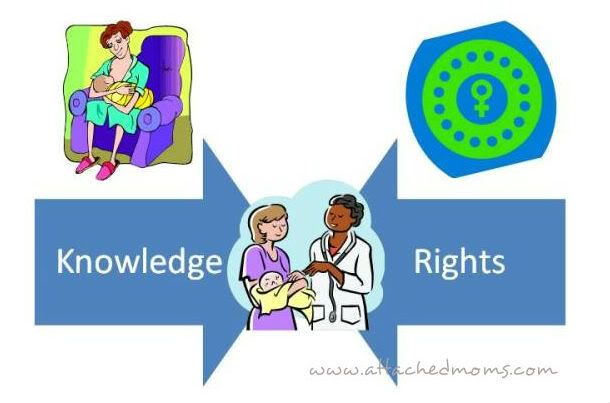In a recent post on Opposing
Views post, this lovely quote came up,
"Women should not have to go armed with a
lot of research when looking for a physician or pharmacist in the
community," Burkhart said.”
This was in regard to being able to find morning after pills, aka Plan
B, but pro-abortion groups may indicate this can be more broad, (but we all
have our views, and skewing can happen either way). But, I ask, how much should a family have aligning points of views on various medical topics? How supportive MUST a medical professional be to their training?
 Should this medical research requirement apply to vaccines? What about breastfeeding? Should a person be required to research which pharmacists are "Plan B friendly" like parents have to research doctors who are "delayed vax friendly" or "breastfeeding friendly"?
Should this medical research requirement apply to vaccines? What about breastfeeding? Should a person be required to research which pharmacists are "Plan B friendly" like parents have to research doctors who are "delayed vax friendly" or "breastfeeding friendly"?It is legal in almost all states to not vaccinate, even if you send your kids to public schools. Almost all states allow religious freedom exemptions (West Virginia does not), and most allow for other exemptions outside of “medical” exemptions. It is also legal to breastfeed, but not all medical doctors are supportive of infant breastfeeding, much less extended breastfeeding.
So, if both Plan B is legal AND not vaccinating is legal, should we have the same fight for medical rights? If a medical doctor believes and is trained to give out vaccines, should they be allowed to not serve a family who chooses to delay or not use vaccines? If you say yes, then pharmacists should also be allowed to not to fill a prescription. I am pro-life (pro-choice too, you choose to have sex (for the most part)), but I am torn on this topic.
I do think a religious facility should have the right to choose what
they do based on religious beliefs, but I also believe a parent should research
to find the best service providers, whether it is a breastfeeding friendly
family doctor, a naturopath who researches and recommends a vaccine schedule
based on the individual child’s medical issues, exposures as well as the
vaccine brands with fewer toxins, or a medical doctor who sits down and talks
through pending issues with a family.
It is sad that not all medical professionals are as gung-ho on breastfeeding as they are on vaccinations. It is sad that we have medical professionals who choose not to even breastfeed for the minimum. Of course, there is no maximum, but at least support for breastfeeding by medical professionals would be appreciated. According to the AAP, some pediatricians actually do not even recommend breastfeeding and instead prefer to recommend formula. It is one thing for a pediatrician to “be okay” with someone trying to breastfeed and then it not working and finding a formula (even though AAP and WHO recommend expressed breast milk (milk sharing) over formula), but it apparently is more difficult to find a pediatrician who would say “do not vaccinate, ever.” More on this topic later J
It is sad that not all medical professionals are as gung-ho on breastfeeding as they are on vaccinations. It is sad that we have medical professionals who choose not to even breastfeed for the minimum. Of course, there is no maximum, but at least support for breastfeeding by medical professionals would be appreciated. According to the AAP, some pediatricians actually do not even recommend breastfeeding and instead prefer to recommend formula. It is one thing for a pediatrician to “be okay” with someone trying to breastfeed and then it not working and finding a formula (even though AAP and WHO recommend expressed breast milk (milk sharing) over formula), but it apparently is more difficult to find a pediatrician who would say “do not vaccinate, ever.” More on this topic later J
Medical professionals MUST remain positive to breastfeeding at minimum.
According to, “Mothers were much less likely to discontinue breastfeeding at 12 weeks postpartum
if they reported (during the 12-week interview) having received encouragement
from their clinician to breastfeed
(OR: 0.6; 95% CI: 0.4–0.8),” (Taveras,
et al, 2003). Medical professionals also need to have breastfeeding knowledge
built into their curriculum, (Feldman-Winter,
2010). More on this topic as well, soon, I promise!
Just as I believe it is a family’s right to not breastfeed, I believe
it is in a family’s right to not vaccinate. Of course an unvaccinated, non breastfed baby
will not get antibodies without other exposure to the disease, the fact is that
as parents, we must research and do the best for our kids. We cannot expect to
be able to blindly follow one “guru.” We are in the information age and we
need to look at information available and weigh risks with benefits and ensure
that we decide on something that we find most appropriate.
1.
AAP recommendation on
breastfeeding: “Pediatricians and parents should be aware
that exclusive breastfeeding is sufficient to support optimal growth and
development for approximately the first 6 months of life‡ and provides
continuing protection against diarrhea and respiratory tract infection.30,34,128,178–184 Breastfeeding should be continued for at
least the first year of life and beyond for as long as mutually desired by mother and child.185
1.
There is no upper limit to the duration of
breastfeeding and no evidence of psychologic or developmental harm from
breastfeeding into the third year of life or longer.
Cited by AAP as ↵
Dettwyler
KA. A time to wean: the hominid blueprint for the natural age of weaning in
modern human populations. In: Stuart-Macadam P, Dettwyler KA, eds. Breastfeeding: Biocultural Perspectives. Hawthorne, NY: Aldine de Gruyter; 1995:39– 73

No comments:
Post a Comment